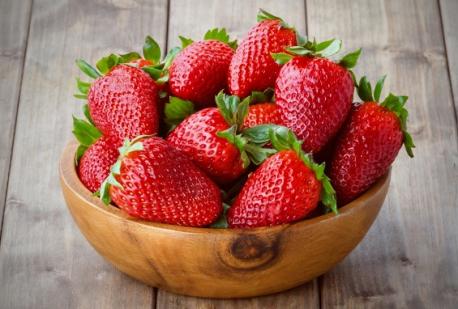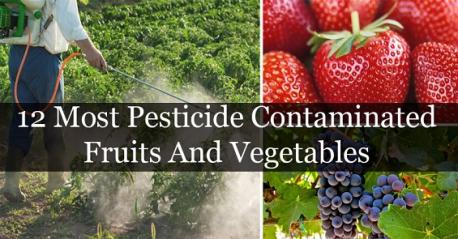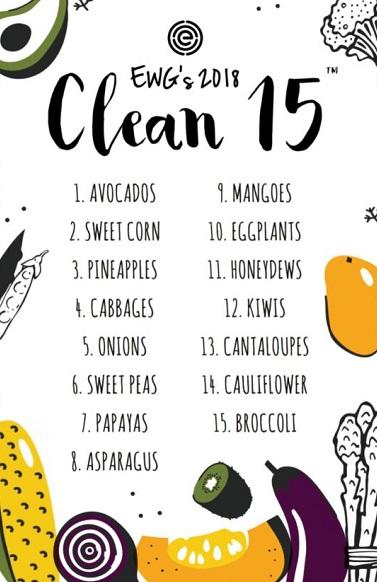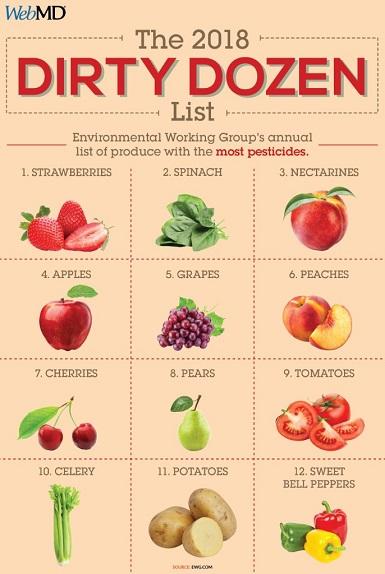Results: The Dirty Dozen
Published on 04/15/2018
In the latest report about pesticide residues, the Environmental Working Group says that 70% of conventionally grown fruits and vegetables contain up to 230 different pesticides or their breakdown products. Information provided by Time.

QUESTIONS
GO to COMMENTS
Comments
1.
1.
The analysis, based on produce samples tested by the U.S. Department of Agriculture, found that strawberries and spinach contained the highest amounts of pesticide residues. One sample of strawberries, for example, tested positive for 20 different pesticides, and spinach contained nearly twice the pesticide residue by weight than any other fruit or vegetable. The two types of produce topped the EWG ranking of the 12 fruits and vegetables with the highest concentrations of pesticides (the so-called "Dirty Dozen"). After strawberries and spinach come nectarines, apples, grapes, peaches, cherries, pears, tomatoes, celery, potatoes and sweet bell peppers. More than 98% of peaches, cherries and apples contained at least one pesticide. Is this the first time you are reading about the dirty dozen?

Yes
56%
1331 votes
No
44%
1033 votes
2.
2.
This year's list nearly mirrors the one from last year, suggesting that little has changed in how these crops are grown. The analysis applied only to produce that wasn't grown organically. Since federal laws in 1996 mandated that the Environmental Protection Agency (EPA) study and regulate pesticide use for its potential to harm human health, many toxic chemicals have been removed from crop growing. But studies continue to find potential effects of exposure to the pesticides still in use. A recent study, for instance, indicated a possible link between exposure to pesticides in produce and lower fertility. Do you think these pesticides are potentially harmful to your health? (referring: to the list in question #1)

Yes
61%
1429 votes
No
12%
276 votes
Undecided
28%
659 votes
3.
3.
More studies are needed to solidify the relationship between current pesticide exposures from produce and long-term health effects. In the meantime, researchers say that organic produce generally contains fewer pesticide residues, and people concerned about their exposure can also focus on fruits and vegetables that tend to contain fewer pesticides. Here is the EWG's list of the fruits and vegetables lowest in pesticide residue (the so-called Clean 15). If you are familiar with the clean 15, what fruits and vegetables do you prefer to eat?

Avocados
32%
745 votes
Sweet corn
49%
1163 votes
Pineapples
46%
1095 votes
Cabbage
36%
840 votes
Onions
49%
1144 votes
Frozen sweet peas
29%
683 votes
Papayas
13%
303 votes
Asparagus
34%
811 votes
Mangoes
24%
573 votes
Eggplants
17%
397 votes
Honeydews
31%
724 votes
Kiwis
29%
684 votes
Cantaloupes
42%
992 votes
Cauliflower
41%
972 votes
Broccoli
53%
1243 votes
All of the above.
13%
301 votes
None of the above.
10%
240 votes
4.
4.
Dirty Dozen List Reminder: strawberries, spinach, nectarines, apples, grapes, peaches, cherries, pears, tomatoes, celery, potatoes, sweet bell peppers; and this includes one pesticide found in peaches, cherries and apples. After reading this survey, will you continue to eat these fruits and vegetables that are considered to be the dirty dozen for 2018?

Yes
58%
1373 votes
No
7%
170 votes
Undecided
25%
597 votes
Not Applicable
10%
224 votes
COMMENTS

